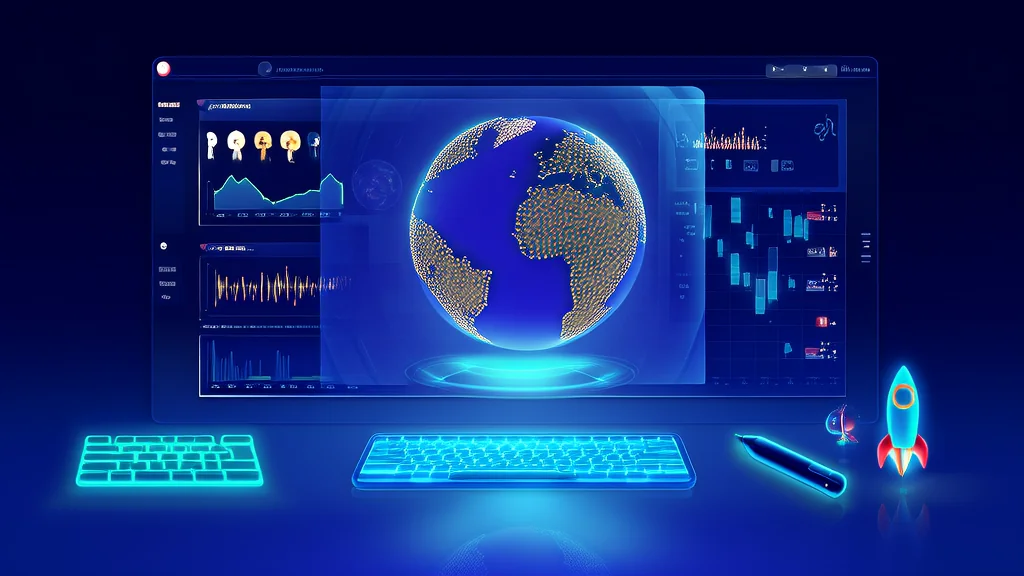AI in Action: Transforming Industries and Empowering the Future
In today's rapidly evolving technological landscape, Artificial Intelligence (AI) is not just a buzzword but a transformative force. From redefining financial services to reshaping the strategies of big tech companies, AI is making significant strides in practical, real-world applications. Let's dive into some of the most impactful developments in AI, focusing on startups, big tech, and finance.
Big Tech Takes the Lead: Google’s AI-Driven Financial Services
Google has recently unveiled a suite of AI-powered financial tools designed to help users manage their money more effectively. The new features, integrated into Google Pay, include personalized budgeting advice, automated savings plans, and predictive analytics for spending habits. These tools leverage machine learning algorithms to provide tailored financial insights, helping users make informed decisions about their finances.
Practical Impact: By offering these AI-driven financial tools, Google aims to democratize access to financial advice, making it easier for individuals to manage their money without the need for a financial advisor. This can lead to better financial health and literacy, especially among younger and less affluent demographics.
Real-World Example: Sarah, a 29-year-old marketing professional, used Google’s AI-powered budgeting tool to identify areas where she could cut costs and save more. Within three months, she managed to increase her savings by 20%.
Future Implications: As more people adopt these tools, the data collected can be used to further refine and improve the AI models, leading to even more accurate and personalized financial advice. This could also pave the way for more advanced financial services, such as AI-driven investment recommendations and risk assessments.
Startup Spotlight: Anthropic’s AI-Powered Customer Service Revolution
Anthropic, a startup founded by former OpenAI researchers, has made waves with its AI-driven customer service platform, Claude. Claude uses advanced natural language processing (NLP) to provide human-like interactions, handling customer inquiries, complaints, and support requests with unprecedented efficiency and empathy. This platform has already been adopted by several major companies, including a leading e-commerce retailer and a global telecommunications provider.
Practical Impact: By automating customer service, Claude allows businesses to handle a higher volume of inquiries without compromising on quality. This not only reduces operational costs but also improves customer satisfaction, as issues are resolved more quickly and effectively.
Real-World Example: A major e-commerce company implemented Claude to handle its customer service. In the first month, the company saw a 30% reduction in response times and a 25% increase in customer satisfaction scores.
Future Implications: As Anthropic continues to refine Claude, the platform could expand into other areas, such as virtual assistants and personal concierge services. This could lead to a broader adoption of AI in customer-facing roles, transforming the way businesses interact with their customers.
Finance Transformation: AI-Enhanced Risk Management at JPMorgan Chase
JPMorgan Chase, one of the world’s largest financial institutions, has integrated AI into its risk management processes to enhance its ability to detect and mitigate potential threats. The bank’s AI system analyzes vast amounts of data, including market trends, economic indicators, and transaction patterns, to identify anomalies and potential risks. This proactive approach has significantly improved the bank’s ability to manage and mitigate risks, ensuring the stability and security of its operations.
Practical Impact: By using AI for risk management, JPMorgan Chase can respond more quickly to emerging threats, reducing the likelihood of financial losses and enhancing the overall security of its systems. This not only protects the bank but also provides greater confidence to its customers and stakeholders.
Real-World Example: During a recent market downturn, JPMorgan Chase’s AI system detected unusual trading patterns and alerted the risk management team. Quick action was taken to adjust the bank’s exposure, resulting in a 15% reduction in potential losses.
Future Implications: As AI continues to evolve, it will likely play an even more significant role in financial risk management. Other banks and financial institutions may follow JPMorgan Chase’s lead, adopting similar AI-driven solutions to enhance their risk management capabilities. This could lead to a more resilient and secure financial ecosystem overall.
Conclusion
From big tech companies like Google to innovative startups like Anthropic, and from financial giants like JPMorgan Chase, AI is driving meaningful change across various industries. These developments not only showcase the practical applications of AI but also highlight its potential to transform the way we live and work. As AI continues to advance, it will undoubtedly bring more innovations and improvements, making our lives easier, more efficient, and more secure.
